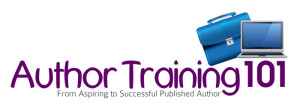 Despite what you think, now might not be the right time to write and publish your book.
Despite what you think, now might not be the right time to write and publish your book.
It’s possible that you need to take some time to get more experience. Maybe you need six months to hone your craft—work at your writing. Maybe you need to seek out an expert co-author or someone to write a foreword so you and your book gain some authority or credibility. Or maybe you need to get some extra credentials, like a life coaching degree or a teaching certificate.
Take a Gamble
You might, however, feel your book is timely and must be published soon. Timing can be everything. You have the choice of approaching publishers or self-publishing right now. You can send query letters to agents and publishers today and see if you get any bites. You can have an ebook up and ready for sale on Kindle this evening and see if it sells. You’ll know soon enough based on the sales record of your book if any seeming lack of credentials or experience matter. Sometimes a great story or great writing trumps everything else (like credentials). Publishing resembles gambling in that sense.
Publish from a Platform
You need to consider one more factor when you make the decision to move forward with your project: author platform. This is the dreaded word most writers do not want to hear. Nor do they want to face it.
A literary agent introduced this word into my vocabulary when I submitted my first proposal to Sheree Bykofsky Associates, Inc. I got a call from Janet Rosen, a literary agent, who told me she loved my idea, my book title, my writing, and even my proposal (the first I’d ever written), but… “You have no platform,” she said. I had no idea what she was talking about and had to ask her to explain. “No one knows who you are,” she said simply. “So no one will buy your book.”
She sent me off to pitch my book to a small publisher who wouldn’t care as much about my lack of platform. Even that publisher cared.
Remember, agents and publishers make money off books sales—your book sales. If you can’t help sell books, they don’t want to partner with you or to invest in you. It’s too risky. Smaller independent publishers (not self-publishers but those not affiliated with the Big Five publishing companies: Penguin Random House, Hachette, HarperCollins, Macmillan, and Simon & Schuster), and even some midsized publishers (also not affiliated with the Big Five) are less risk adverse. The size of your platform, to some extent, indicates how well you can help sell books; it’s a built-in audience.
Today, a lot of discussion goes on about how much time should be devoted to platform building and at what point in an author’s career. Yet, most publishers want to see an author platform. Indie author, should require platform of themselves as well. That means if you want to publish your own book, you should feel concern about your ability to sell books.
With all this in mind, consider if this is the right time to write and publish your book.
 Note: You can read additional blogged draft excerpts from my new book, The Author Training Manual (Writer’s Digest Books, March 2014) here. Only select pieces from the manuscript, a “working draft,” were posted—not the complete manuscript. Read the next post in the The Author Training Manual blogged-book series by clicking here. Purchase the book on Amazon.com, barnesandnoble.com or at Writersdigestshop.com.
Note: You can read additional blogged draft excerpts from my new book, The Author Training Manual (Writer’s Digest Books, March 2014) here. Only select pieces from the manuscript, a “working draft,” were posted—not the complete manuscript. Read the next post in the The Author Training Manual blogged-book series by clicking here. Purchase the book on Amazon.com, barnesandnoble.com or at Writersdigestshop.com. Lea rn how to create a successful book—one that sells to publishers and to readers—by developing an AUTHOR ATTITUDE and writing a BUSINESS PLAN for a MARKETABLE BOOK. Register for the AUTHOR TRAINING 101 Home-Study Course, and go from aspiring to successful published author! This course is based on The Author Training Manual. If you like what you’ve read here, you’ll love the course.
rn how to create a successful book—one that sells to publishers and to readers—by developing an AUTHOR ATTITUDE and writing a BUSINESS PLAN for a MARKETABLE BOOK. Register for the AUTHOR TRAINING 101 Home-Study Course, and go from aspiring to successful published author! This course is based on The Author Training Manual. If you like what you’ve read here, you’ll love the course.
Photo courtesy of winnond | freedigitalphotos.net